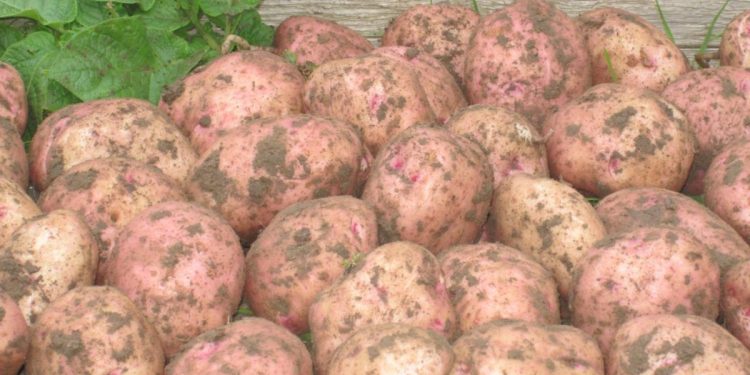#SustainableAgriculture #PotatoProduction #ResilientFarming #AgriculturalInnovation #ClimateResilience #TissueCulture #FoodSecurity #FarmersInitiative #AgriculturalSustainability #PakistanChinaTrade
In a recent session at the Pakistan-China Joint Chamber of Commerce and Industry (PCJCCI) Secretariat in Lahore, agricultural leaders convened to discuss a groundbreaking proposal: the cultivation of disease-free Chinese potato varieties in Pakistan. This innovative approach could revolutionize the country’s potato production, offering resilience against pests and diseases. In the face of challenges posed by climate change and recent natural disasters, this initiative presents a promising path toward sustainable agriculture.
The PCJCCI leaders emphasized the remarkable resistance of Chinese potato varieties to pests and diseases, positioning them as a valuable asset for Pakistan’s agriculture sector. To support this initiative, they advocated for the establishment and promotion of Tissue-Culture Laboratories, emphasizing Pakistan’s role as a significant potato exporter and its self-sufficiency in domestic potato consumption, as reported by Gwadar Pro.
Latest Data Insights: Despite recent challenges, Pakistan’s potato production witnessed a commendable rise. In the fiscal year 2022-23, potato production surged to 7.937 million tonnes, marking a remarkable 35 percent increase from the previous fiscal year’s 5.873 million tonnes. This growth was particularly notable in Punjab, a major potato-producing region that remained unaffected by the devastating floods that impacted various crops across the country.
However, it is crucial to note that Pakistan still relies heavily on the import of 20,000 tons of potato seeds annually. This dependency not only poses economic challenges but also elevates initial production costs significantly, with approximately 35 to 40 percent of the expenses allocated to seeds.
The proposal put forth by PCJCCI stands as a beacon of hope for Pakistan’s agriculture sector. By embracing disease-free Chinese potato varieties, the country can fortify its potato production against adversities. The establishment of Tissue-Culture Laboratories can play a pivotal role in this transformative journey, reducing dependency on foreign seeds and minimizing production costs. As Pakistan navigates the complexities of climate change and natural disasters, investing in resilient agricultural practices is paramount. This initiative not only promises economic benefits but also underscores the importance of sustainability and self-sufficiency in the face of global agricultural challenges.





